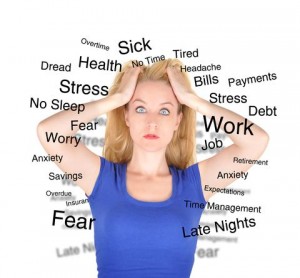 To measure stress according to the Holmes and Rahe Stress Scale, the number of “Life Change Units” that apply to events in the past year of an individual’s life are added and the final score will give a rough estimate of how stress affects health.
To measure stress according to the Holmes and Rahe Stress Scale, the number of “Life Change Units” that apply to events in the past year of an individual’s life are added and the final score will give a rough estimate of how stress affects health.
Life event Life change units:
- Death of a spouse 100
- Divorce 73
- Marital separation 65
- Imprisonment 63
- Death of a close family member 63
- Personal injury or illness 53
- Marriage 50
- Dismissal from work 47
- Marital reconciliation 45
- Retirement 45
- Change in health of family member 44
- Pregnancy 40
- Sexual difficulties 39
- Gain a new family member 39
- Business readjustment 39
- Change in financial state 38
- Death of a close friend 37
- Change to different line of work 36
- Change in frequency of arguments 35
- Major mortgage 32
- Foreclosure of mortgage or loan 30
- Change in responsibilities at work 29
- Child leaving home 29
- Trouble with in-laws 29
- Outstanding personal achievement 28
- Spouse starts or stops work 26
- Beginning or end school 26
- Change in living conditions 25
- Revision of personal habits 24
- Trouble with boss 23
- Change in working hours or conditions 20
- Change in residence 20
- Change in schools 20
- Change in recreation 19
- Change in church activities 19
- Change in social activities 18
- Minor mortgage or loan 17
- Change in sleeping habits 16
- Change in number of family reunions 15
- Change in eating habits 15
- Vacation 13
- Major Holiday 12
- Minor violation of law 11
Score of 300+: At risk of illness.
Score of 150-299: Risk of illness is moderate (reduced by 30% from the above risk).
Score <150: Only have a slight risk of illness.
via Holmes and Rahe stress scale – Wikipedia, the free encyclopedia.









